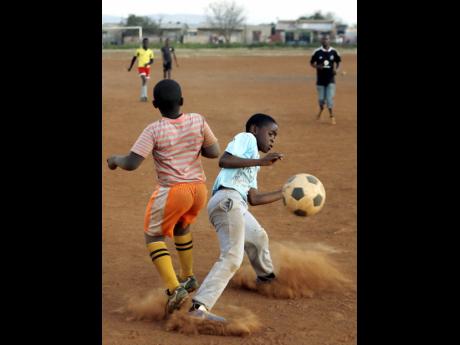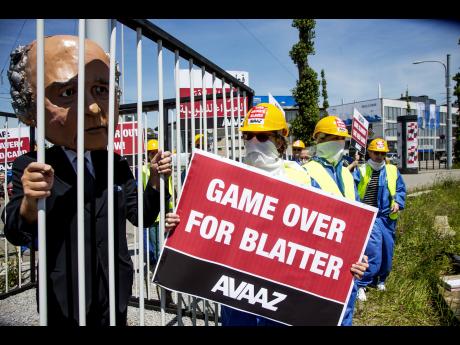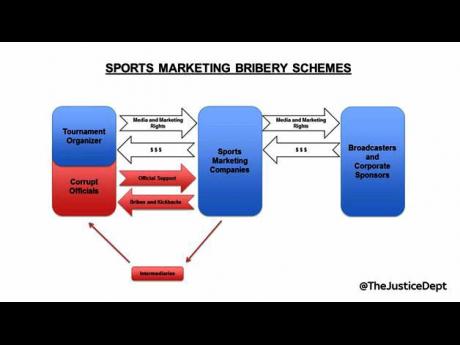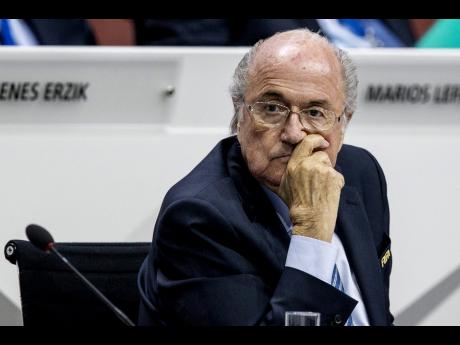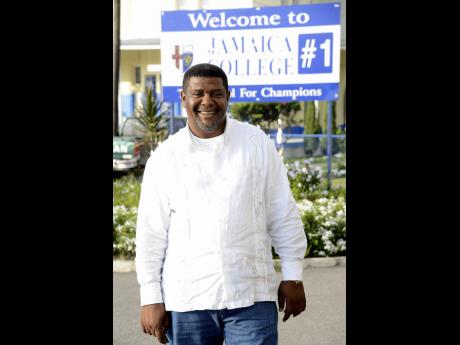FBI’s FIFA probe – lessons to be learnt
During her presentation of the damning 47-count indictment in the FBI's criminal investigation on FIFA, United States Attorney General Loretta Lynch asserted that many of the individuals who were expected to uphold the rules that keep soccer honest and to protect the integrity of the game instead corrupted the business of sport to serve their interests and enrich themselves.
Many football enthusiasts may now sarcastically call her Christopher Columbus as this great 'discovery' of FIFA's corruption and skulduggery has been rumoured from the days of Joao Havelange, the Brazilian who led FIFA from 1974 to 1998, and continued when his former right-hand man, Sepp Blatter, succeeded him as president.
Innumerable sources have characterised the governing body of the world's most popular game as the epitome of corruption, with countless allegations documented, one of the most riveting authored by David Yallop, who Amazon claims is widely considered to be the world's leading investigative writer. In his book titled How They Stole The Game, a classic exposÈ of the dark heart behind the beautiful game, Yallop depicted football as rotten from the top down and chronicles the story of how Joao Havelange turned a religion of millions of fans into a multibillion-dollar business, driven with suspicious deals and unexpected payments.
Blatter himself has been accused of corruption by myriad sources, including even a FIFA insider, the former general secretary, Michel Zen-Ruffinen, who has alleged in a 21-page dossier, according to Reuters, that Blatter has systematically mismanaged FIFA by deception, illegal payments, violating the statutes, and cronyism.
Complex investigation
There are important lessons that jurisdictions worldwide, including Jamaica's, must take away from what the FBI now alleges to be a criminal investigation involving "'generations of bribery and corruption". Those of us whose professions include conducting investigations understand the need to await the results of AG Lynch and her team's probe, and, notwithstanding the jaundiced history of FIFA outlined above, refrain from prognosticating on the final outcome. What we do know, however, is that if we close-mark the protagonists and game plan of the FBI in what could be the most multifaceted and complex white-collar crime investigation, the lessons learnt will be invaluable.
For example, in answering the question of why it took so long for these charges and arrests to be levelled against these FIFA functionaries, exploring the legalities and investigational methodologies involved can provide local agencies like MOCA with powerful learning opportunities.
The international strengthening and cooperation around the globe on money laundering, anti-terrorism and other cross-border laws have bolstered US authorities' effectiveness in ways that they were hitherto hampered. Accordingly, the new international legal dispensations now allow US federal agents to gather financial records that used to be unavailable and bring charges almost anywhere that FIFA officials did anything, thus eliminating international boundaries and other obstacles.
The first invaluable lesson that should not escape us is the clever use of these tools by AG Lynch and her team of prosecutors and agents as they assembled their evidence. Lynch's investigative collaborators included high-ranking federal officials such as FBI Director James Comey and Richard Weber, head of the IRS's Criminal Investigation Division. According to Mr Weber, "This really is the World Cup of fraud, and today we are issuing FIFA a red card.
"According to Lester Munson, ESPN's legal analyst, the RICO racketeering law allowed federal prosecutors to use conspiracy allegations to link together, in a single case, individuals from 12 nations and to use evidence of one FIFA executive's chicanery against all of them. It is a bit tricky for prosecutors, but it will be difficult for even the best defence lawyers to answer. It also will allow the government, if it succeeds in convicting the indicted individuals, to seize personal assets in civil forfeiture actions.
Another key point is that large, organised criminals (or suspects) require substantial resources to counter them. Chris Eaton, former FIFA head of security, said that US officials have done "something that no other police organisation or other region has done so far on FIFA".
"The fact is there's been no jurisdiction that was able to take a report, or to take action, or to coordinate a global action such as the US has done today," he said. "We're seeing for the first time very powerful jurisdictions take action against a very powerful, opaque organisation, FIFA."
Powerful FBI
Although the suspected organisation in this case is the powerful FIFA with cash reserves of $1.5 billion, well able to defend itself and its executives, and led by a man with a Houdini-like ability to survive incriminating situations, the prosecutor is far more resourced than in the days of Edgar Hoover. Today's FBI, for example, has at its disposal employees numbering 35,104 at October 31, 2014; a whopping annual budget of US$8.3 billion (FY 2014); has jurisdiction over violations of more than 200 categories of federal crime; maintains 56 field offices in major cities throughout the United States and more than 400 resident agencies in lesser cities and areas across the nation.
In terms of the specific methodologies used by the FBI, a great deal of their strategies and tactics of necessity will be confidential, but we do know that though they continuously endeavour to upgrade their competencies, certain tried and proven tools and techniques and methodologies are utilised. The FBI would have identified early in their planning the enormity of the FIFA challenge, but with established methodologies such as The Traditional Seven Steps of Criminal Investigation at their disposal, would not have felt intimidated or overwhelmed.
The Traditional Seven Steps of Criminal Investigation is a process commonly taught and applied in the USA by federal, state, and local law-enforcement authorities whose customisation capability enables forensic accounting practitioners to closely interface with respective law-enforcement agencies, thus matching their approach when applying forensic accounting.
Four FIFA officials already have entered guilty pleas and forfeited more than $2 million of their ill-gotten gains. Any of these four officials, who include former FIFA executive Chuck Blazer, may yet produce evidence implicating other officials as the FBI's effective use of plea-bargaining is well known. It is quite possible that they will be cooperating with federal prosecutors as they try to reduce their time in the penitentiary.
Other evidence
In addition, other sources of possible evidence against other FIFA officials may be detected from the voluminous documents secured after federal authorities raided and searched FIFA headquarters in Zurich and the CONCACAF headquarters in Miami. Accordingly, the information extracted from these sources may be able to be converted to valuable smoking-gun evidence, utilising any or all of the appropriate four stages or 13 actions highlighted in the framework shown above, in an attempt to verify the various charges of racketeering, wire fraud and money-laundering conspiracies that the FBI contends spanned two decades.
No doubt the FBI will draw from its vast resources to utilise historically proven tools and techniques that may include document examination (infrared electronic converter, electrostatic detection apparatus, Projectina, etc); forensic software (EnCase, etc), graphology; polygraph; psychometrics; interviewing/interrogation techniques; kinesics; and expert testimonies..
Don't be surprised if FIFA officials begin immediate 'vacations' in one of about 100 countries that do not have extradition treaties with the US. Most countries in the Western Hemisphere have extradition treaties with the US, and this writer's research has revealed that the US has bilateral extradition agreements with about 107 nations, thus effectively sealing off places that any FIFA fugitive running scared may try, with the exception of flights between Aruba and Curacao.
Maybe the biggest lessons to learn for everyone is that with today's forensic crime-fighting capabilities, as exemplified by the FBI, not only do sports or other types of crime not pay, but you can't escape the long arm of the law.
- Collin Greenland is a forensic accountant. Email feedback to columns@gleanerjm.com and cgreeny.collin@gmail.com.

